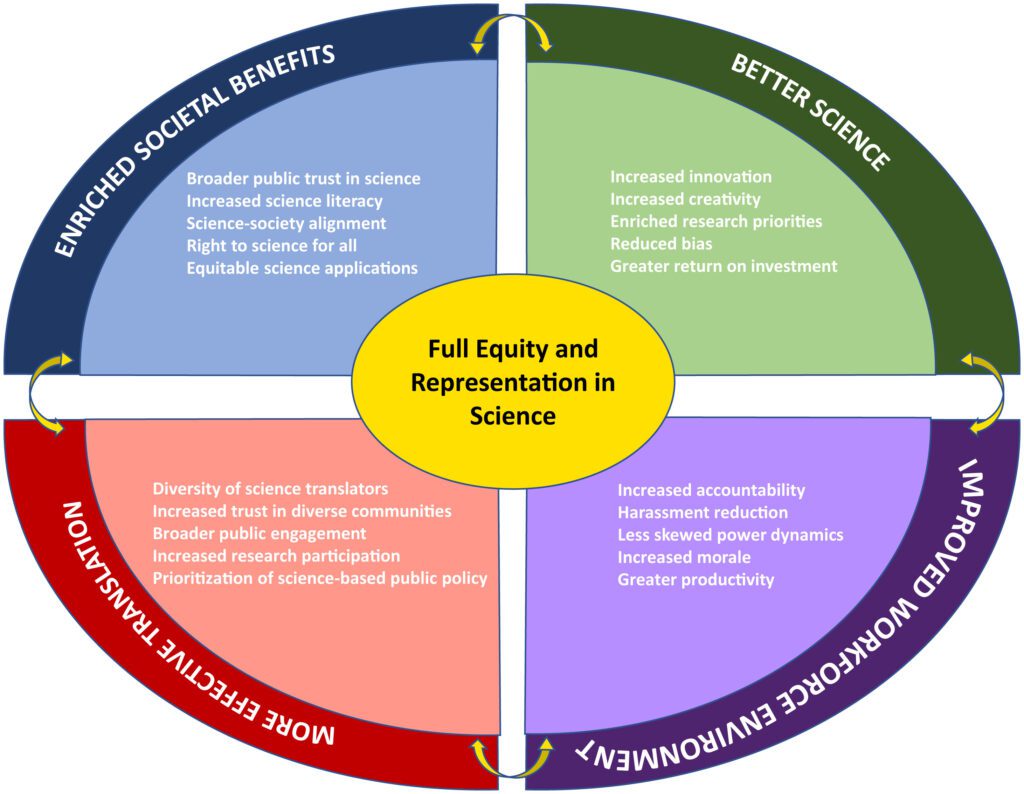In recent decades, there has been a growing recognition of the importance of inclusivity and diversity in various spheres of society. This recognition extends to business, politics, academia, and beyond. In particular, attention has been drawn to the participation and significance of women and minorities in these areas. By focusing on the empowerment and inclusion of women and minorities, societies stand to benefit from a richer tapestry of perspectives, experiences, and talents. This article explores the significance of prioritizing women and minorities’ participation and highlights the strides made and challenges that persist.
Empowerment through Participation
Empowering women and minorities through active participation in different fields is essential for fostering equality and representation. Historically, these groups have faced systemic barriers and discrimination that have hindered their full involvement and contribution. However, initiatives promoting diversity and inclusion have sought to dismantle these barriers and create opportunities for all individuals to thrive.
In the workplace, efforts to increase the representation of women and minorities have led to the implementation of diversity initiatives, mentorship programs, and inclusive hiring practices. Companies recognize the benefits of diverse teams, including improved innovation, problem-solving, and overall performance. Moreover, by providing equal opportunities for career advancement and leadership roles, organizations can help break down traditional gender and racial stereotypes.
Addressing Persistent Challenges
Despite progress in promoting diversity and inclusion, significant challenges persist. Women and minorities continue to face structural inequalities, including wage gaps, limited access to education and resources, and underrepresentation in leadership positions. Additionally, stereotypes and biases can undermine their contributions and limit their opportunities for advancement.

In politics, women and minorities are often underrepresented in decision-making bodies, making it challenging to address issues that directly affect their communities. However, initiatives aimed at encouraging political participation among these groups, such as training programs and mentorship opportunities, are helping to bridge this gap. Additionally, advocating for policies that promote gender and racial equality is crucial for creating a more inclusive political landscape.
The Significance of Representation
Representation matters not only as a matter of equity but also for its tangible benefits to society. When women and minorities see themselves reflected in leadership positions and influence, it sends a powerful message of possibility and validation. Moreover, diverse representation ensures that a wide range of perspectives and experiences are considered when making decisions that affect entire communities.
In media and popular culture, efforts to increase representation have created more diverse and authentic portrayals of women and minorities. By showcasing a variety of narratives and experiences, media can challenge stereotypes and foster greater empathy and understanding among audiences.
Moving Forward: Commitment and Collaboration
Achieving full participation and significance for women and minorities requires a concerted effort from all sectors of society. It requires a commitment to dismantling systemic barriers, challenging stereotypes, and creating inclusive environments where everyone can thrive. Governments, businesses, educational institutions, and civil society organizations all have a role to play in advancing gender and racial equality.
Furthermore, it is essential to recognize that diversity and inclusion are not just buzzwords but fundamental principles that drive progress and innovation. By embracing the richness of human diversity, societies can harness the full potential of all their members and create a more just and equitable world for future generations.
In conclusion, focusing on women and minorities’ participation and significance is a matter of fairness and a strategic imperative for building more inclusive and resilient societies. By empowering women and minorities to fully participate in all aspects of life, we can unlock new opportunities for growth, creativity, and progress. Together, we can build a future where everyone has the opportunity to thrive, regardless of gender, race, or background.


